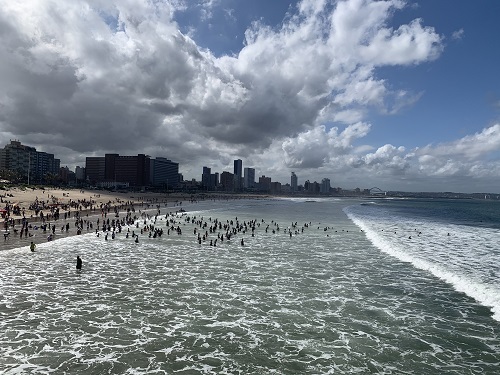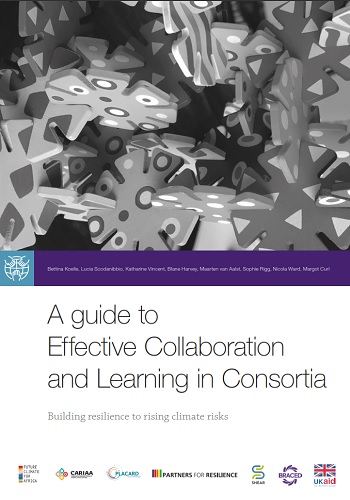
by Katharine Vincent | Feb 19, 2020 | Projects
Dr Katharine Vincent is in Durban this week for the launch workshop of a new project "Responding to sea-level rise and storm events: A proposed framework for developing coastline adaptation strategies in southern Africa". The project is funded by the...

by Katharine Vincent | Sep 16, 2019 | Publications
The BRACED programme, in partnership with Future Climate For Africa, CARIAA, PLACARD, Partners for Resilience and SHEAR, has just released A guide to effective collaboration and learning in consortia. Building resilience to rising climate risks, written by...
by Katharine Vincent | Aug 1, 2016 | Commentary, Projects
The Climate Systems Analysis Group (CSAG) and Kulima Integrated Development Solutions have published a blog on communities of practice. The project "Integrated Climate Change Modelling and Policy Linkages for Adaptive Planning" looked at certain...
by Katharine Vincent | Jul 22, 2016 | Projects, Travel
Dr Katharine Vincent is currently in Addis Ababa to participate in a workshop under the Collaborative Adaptation Research in Africa and Asia (CARIAA) programme. One of the core aims of CARIAA is to promote uptake of adaptation research by stakeholders in policy and...
by Katharine Vincent | Feb 25, 2016 | Projects
Dr Katharine Vincent and Ms Tracy Cull are working with the Climate Systems Analysis Group at the University of Cape Town to investigate science-policy communication pathways as part of the project "Integrated Climate Change Modelling and Policy Linkages for...




